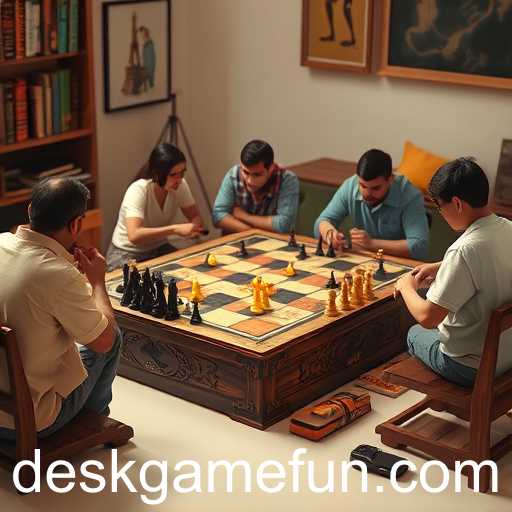In the ever-evolving landscape of the gaming world, classic games hold a distinct and irreplaceable charm that resonates with players of all ages. Among the myriad of gaming categories, 'Classic Games' holds a unique appreciation for its timeless design and nostalgic allure. One standout keyword that has recently drawn attention in this category is 'deskgame', a term that encapsulates a wide range of board, tabletop, and traditional desk-based games that have made a significant comeback in recent years.
Classic games often evoke memories of simpler times, where gameplay depended heavily on strategy, skill, and sometimes sheer luck, rather than high-tech graphics or immersive virtual worlds. Within this arena, 'deskgame' refers specifically to physical games that are played in a stationary setting, typically on a desk or table, capturing the essence of traditional gameplay experiences.
'In today's digital age, where video games and online platforms seem to dominate the entertainment industry, the resurgence of 'deskgame' highlights a fascinating trend toward rediscovering hands-on, interactive play experiences. The tangible aspect of these games, with their tactile pieces and boards, fosters a tradition of direct social interaction that screens and virtual avatars simply cannot replicate. Families and friends gather around a table, engrossed for hours in collective problem-solving endeavors or fierce yet friendly competitions.
As younger generations become increasingly curious about these timeless treasures, there has been a marked increase in the production and sales of classic-style board games. These games, ranging from universally beloved titles such as chess and checkers to culturally significant puzzles and strategy games, provide competitive and cooperative experiences that are cherished by enthusiasts. In particular, the keyword 'deskgame' has served as a renewed beacon for communities seeking to preserve and expand upon the social multiplayer accessibilities offered by these traditional games.
Notably, many contemporary game developers have taken advantage of this renewed interest, introducing modern twists to age-old games, breathing new life into the 'deskgame' category. By blending the digital with the physical, some developers are integrating technology like augmented reality (AR) and mobile apps to enhance gameplay, creating hybrid experiences while retaining nostalgic elements.
In conclusion, the 'deskgame' remains a pillar in the Classic Games category, symbolizing not only an appreciation for the games of the past but also a vibrant future for new adaptations and creations. Whether it’s a cherished afternoon pastime or a staple for large-scale family gatherings, these games continue to provide joy, learning opportunities, and social bonding moments, thereby maintaining their relevance and popularity in the gaming panorama. As more people embrace classic games, they unlock new pathways of exploration into the rich heritage of human play, bridging generations and cultures through the love for timeless 'deskgame' adventures.








